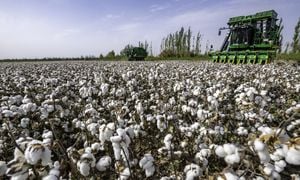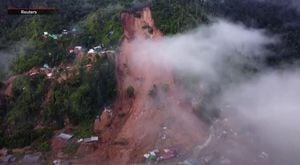Climate change is no longer just a buzzword; it’s become a stark reality affecting millions across the globe, especially women, who bear the brunt of its impacts. Recent research has shed light on how climate change disproportionately affects various demographics, highlighting the unique challenges faced by women. This article delves deep, examining the intertwined relationship between climate change, gender inequalities, and economic stability.
Women, particularly in developing nations, rely heavily on natural resources for their livelihoods. Agricultural practices, often labor-intensive and vulnerable to climate variations, form the backbone of many rural economies. Yet, as climate change wreaks havoc through droughts, floods, and other extreme weather phenomena, the direct consequences are felt most acutely by them. When men migrate to urban centers for work, leaving behind women to manage farms and households, the pressure mounts. Many rural women find themselves with less support and dwindling resources to sustain their families.
A recent report from the Network for Greening the Financial System (NGFS) painted a grim picture of our future, projecting a staggering reduction of global growth by one-third due to climate impacts—an increase from earlier estimates. This economic downturn is significantly linked to the ability of women to thrive within these climates of uncertainty. Sandy Trust, a noted actuary, pointed to factors like rising sea levels and climate-driven migration as exacerbators of economic instability, stating, “the report's findings should serve as alarm bells for those who underestimate the severity of these impacts.”
The NGFS report highlights how inadequate climate policies worsen the situation. Livio Stracca, deputy director-general for financial stability at the European Central Bank, noted, “the lack of policy ambition creates a vicious circle, leading to increasing costs of mitigation policies which complicate their implementation.” Poor policies not only hinder economic recovery but also restrict women’s opportunities to gain financial independence.
With the increasing likelihood of water shortages and mounting food insecurity, women are often left scrambling to provide for their families. They face greater risks of poverty and violence as resources dwindle. The statistics are troubling: women, particularly those residing in vulnerable regions and with limited access to education, experience higher rates of malnutrition and illness compared to their male counterparts. The ripple effects of climate change are painfully clear—higher temperatures not only contribute to agricultural decline but also lead to poorer health outcomes, starkly illustrating the knock-on effects of environmental shifts.
Research has also shown how cultural and social norms perpetuate the inequalities seen during climate crises. Women often have less access to decision-making roles, which limits their capacity to influence climate-related policies. The imbalance is reflected distinctly in the economic sphere where women are often relegated to low-wage, unstable jobs. Chiara Grazini and Giulio Guarini, economists at the University of Tuscia, emphasized the urgency of implementing equitable climate change policies, stating, “Climate change policies must address women’s unique challenges. By focusing on improving women’s capabilities, it is possible to protect them from the impacts of climate change.”
A study pointed out the direct relationship between public awareness about climate issues and the limited involvement of civil society, especially women, in crafting climate policies. Education initiatives remain woefully inadequate, which makes it harder for women to adapt to changing environments. Agricultural work, which is predominantly carried out by women, is stifled by climate change, threatening their financial stability and overall health.
The responsibility for securing energy sources for homes also disproportionately burdens women. Many rely on traditional fuel sources, exposing themselves to health risks from indoor air pollution and severely infringing on their ability to engage productively in economic activities. With around one-third of the global population lacking access to electricity, this is more than just inconvenience; it’s about survival. Energy poverty is especially acute for rural women who spend countless hours gathering firewood, hours they could spend otherwise improving their economic standing.
Efforts to combat climate change are often mired in systemic issues. The failure of global leaders to convene for summits like COP29, particularly the absence of the U.S., has drawn criticism from many corners. The retreat from these international commitments signals to the world the diminishing priority placed on confronting climate change collectively, posing new dangers for vulnerable populations, especially women.
Despite the negative outlook, there are pathways to improvement. Increasing the engagement of women within climate policies will empower them not just to survive but to thrive amid these changes. This approach is echoed across various studies advocating for gender-responsive climate strategies. Capacity building through education and resource allocation could turn the tide. Such initiatives could provide women with the tools needed to advocate for their needs within their communities and on larger platforms.
There is potential for positive change if stakeholders recognize the importance of integrating women's voices and perspectives within climate policies. The Southern Centre for Inequality Studies, along with the International Development Research Centre, has initiated collaborative efforts focusing on equality within climate strategies. These initiatives aim to snuff out existing biases found within climate discussions, accounting for diverse experiences and ensuring equitable representation.
Education remains the cornerstone for fostering awareness and engagement. Schools can play pivotal roles by including climate education in their syllabi, thereby equipping young generations with the knowledge they need to advocate for sustainable practices. Topics focusing on waste recycling, biodiversity, and energy conservation should become standard components of educational frameworks. The increased visibility of women’s roles within agriculture and climate dialogues will not only help secure their livelihoods but also create strong advocates for future generations.
The prevailing mindset must shift from merely addressing environmental concerns to recognizing the intersections between gender, climate, and economic policies. Amartya Sen’s capability approach emphasizes this necessary transition by advocating for the expansion of individuals' capacities rather than solely focusing on economic outputs. The capability approach offers insights on enhancing women’s opportunities to achieve well-being even amid global challenges. It points to the real freedoms individuals possess to pursue diverse life paths, and bringing this to the forefront can change the narrative of victims to empowered change-makers.
Climate change isn't just about rising sea levels and extreme weather patterns; it’s entwined with social injustices and gender inequalities. Promoting women's participation and leadership within climate action agendas will not only address immediate challenges but develop a framework for lasting change, which is imperative to building resilient communities worldwide. This is not just about survival; it's about creating environments where women can thrive, enriching economies, and fostering equitable futures.
Without decisive action, the already precarious balancing act faced by women and economies will tip irreparably. It’s time for all nations to reaffirm their commitments, engage civil society comprehensively, and truly account for the voices of those most affected—especially women—if we are to navigate this climate crisis successfully.



